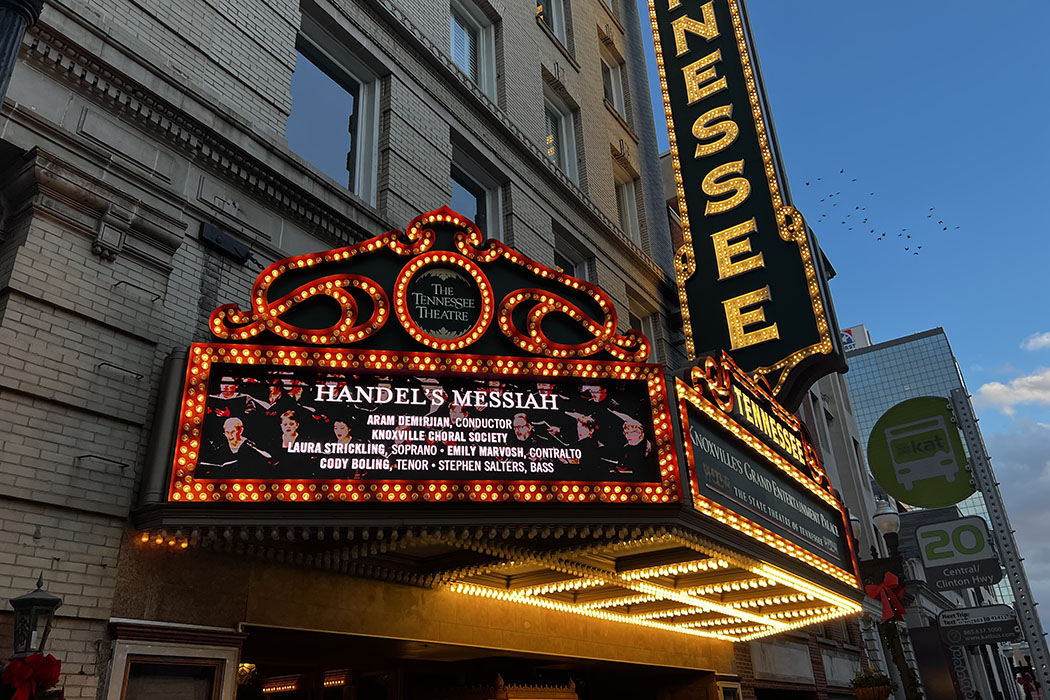Of all the creations of music in the “classical” realm, George Frideric Handel’s Messiah is the perfect example of a beloved musical work that has survived a multitude of twisted traditions and misunderstandings, not to mention the performance abuse that comes with the well-meant intentions of over-popularity. Completed in 1741 and first performed in April of 1742 in Dublin, Ireland, at Neale’s Music Hall, Handel originally intended his oratorio Messiah for an Easter-time event. Handel also created the work with modest instrumentation, yet by the 1850s, Messiah was receiving lavish productions with huge choruses and orchestras and was often performed as a spectacle for Christmas audiences.
Thankfully, the late 20th century trend of “historically informed performance” has cooled some of those excesses of solemnity and scale in Messiah events. Achieving a satisfying and professional balance of purpose of orchestra, chorus, and soloists is the sensible approach that Maestro Aram Demirjian embraced for a performance this past Sunday afternoon at the Tennessee Theatre by the Knoxville Symphony Orchestra along with the Knoxville Choral Society. Although there is certainly no lack of Messiah performances in the U.S. this time of year, one can certainly understand the attraction of making it an annual event in December, at least the Part I “Christmas” section. Although the complete Messiah consists of three parts, the KSO’s Classical Christmas performance included Part I plus several arias from Parts II and III—and, of course, the virtually mandatory “Hallelujah Chorus” from Part II. A performance by a top-notch KSO along with the Knoxville Choral Society and an admirable quartet of soloists is an opportunity that audiences shouldn’t pass up under any circumstances.
In Sunday’s performance, the Knoxville Choral Society, the KSO’s regular choral colleague in its spot behind the orchestra, continued to impress with its clean articulation, diction, and balance, as well as with its agility in the projection of just the right amount of emotion in the text. Likewise, the English text delivered by the four excellent soloists was miraculously crisp and intelligible, both the straightforward passages and the subtle embellishments. Overall, the balance between orchestra, chorus, and soloists was just about as perfect as one would hope for in the warm supportive resonance and directivity of the Tennessee Theatre and the KSO’s acoustic shell.
Following the orchestra’s overture, tenor Cody Boling stepped to the soloist’s spot center stage and took his two Part I arias, “Comfort ye my people” and Ev’ry valley”, delivering them with a beautiful directness, a surprising range, and a delicious clarity of tone throughout that range.
Baritone Stephen Salters, a member of the University of Tennessee College of Music voice faculty, was on hand for the bass solos and delivered a strong recitative, “This saith the Lord of Hosts.” Of course, worth waiting for was Salters’ rich and resonant “The trumpet shall sound” from Part III, with KSO Principal Trumpet Kole Pantuso performing the aria’s trumpet obbligato with confidence and a golden sparkle.
One was immediately drawn to the contralto part, given an intriguing character by Emily Marvosh. Her contralto voice fit well into the tessitura of Handel’s role, having both lyrical and dramatic richness and beautiful control in her embellishments. Her aria “But who may abide” was infinitely satisfying.
Soprano Laura Strickling offered a beautiful take on her role, maintaining the same strength of articulation as her fellow soloists, but with the added surprise of gentle delicious touches of coloratura. In her “Rejoice greatly, O daughter of Zion,” she demonstrated an impressive mastery of her instrument, tempering her power with a careful lyrical edge.
Demirjian opened the concert with Leroy Anderson’s Suite of Carols, a 1955 work for strings surprisingly new to this writer. The following work offering got us into the proper Baroque frame of mind: the five-movement Johann Sebastian Bach Orchestra Suite No. 3.








